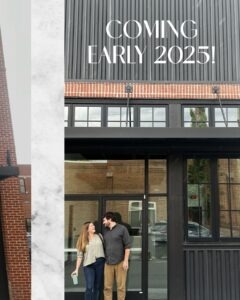Asulon Collective featuring Dr. Keith Webb
Welcome back to part 2 of the recent interview with Dr. Keith Webb. Be sure to check out the first part here if you missed it! Let’s go ahead and pick up right where we left off…
E: How have you experienced refuge throughout your lifetime? How did that person or experience shape you into who you are now? What words or actions have stuck with you?
K: I’m not thinking of a specific example, but beyond them listening and their non-judgment (which we’ve already talked about that stands out) – I am thinking of when people provided that refuge for me.
The other thing people did was sponsor me. In other words, I didn’t have the credibility or the experience to do something, but somebody sponsored me into a new situation where I could do it. Behind that sponsoring was them believing in me and them being willing to take a chance on me. Of course I had to step up and deliver, but they took a chance on me and were willing to do that even if I failed. To me, that’s a refuge certainly in the professional sense – in the work world.
Other times where I’ve seen refuge with people… when you’re in leadership or in any kind of public eye – you’re often always “on”. Meaning you’ve got to watch what you say, people want something from you all the time – this sort of thing.
So personal times of refuge have been when I’m with others and they don’t want anything or aren’t impressed with anything about me. I’m just their friend, Keith. To me, that’s a refuge where I can let down a little bit and not be on.
You need people who are not going to be “wowed” by you and will call you on your stuff. If you’re a leader of an organization, nobody in the organization (most likely) is calling you on your stuff. It all goes downhill – so who is doing it for the leader? That’s why leaders need places that they can share freely. When you’re the leader of an organization you don’t express doubts with your team – not big ones anyway and not ones that don’t have solutions already. So you’ve got to process all that somewhere else and that becomes a refuge. It’s why there are different kinds of mastermind groups and other places where people can meet together and talk without being judged or without having a consequence of it because it‘s going to get back that ‘the boss said this or that.’
E: That’s really good. I feel like that’s so important to keep healthy leaders too – to be able to have that outlet.
K: Well yeah, because otherwise you get a big head and start believing your own PR. You can get into all kinds of trouble. A person’s character development never stops. Our character is not formed by the time we are out of our teens – not at all. Your character is continually challenged in new, deeper and more dramatic ways as you get into your 30’s, 40’s, 50’s, and beyond. You’ve got to have a place to process all that.
E: What inspires you and continues to propel you to be a refuge for others through coaching?
K: I love seeing people excel, come into and be their full selves. I love to see that because when people are living out their calling, they’re functioning out of their gifting and their passion. You can just see when this happens and they are making a contribution; we need everyone’s contribution.
That’s why, for me, it’s difficult to see different segments of people who get marginalized for one reason or another. They get marginalized either because they could be too old or too young, or they’re the wrong gender, or whatever the thing is for the role or whatever else. The thing is, we need you. We need her. We need him. And we need them to be their full self.
When we get that, I think we’re going to have a much better world. I think when we get everyone’s full selves we will have a lot less depression, stress, and anxiety. Plus, we’re going to see people activated. I mean in the working world, the big thing that everybody’s trying to get is employee engagement. You’re not going to get employee engagement until you activate your staff, until you tap into how they’re naturally wired, and help them get into roles that excel in that. That’s what I mean by all that.
If they have no passion or calling about what the job is (everybody has to do stuff they don’t like to do) but if they aren’t passionate or called to it in the first place, then it’s life numbing to continue to do it year after year after year. No one ever drifts towards their life passion. You have to be intentional to go after that.
E: You also talked about the importance of reflecting in order to grow and learn. How can reflection ultimately be a tool for forward movement instead of getting stuck looking back?
K: Looking back has its merits, but you can bring no change to the past. The benefit of looking back is how you can correct your current thinking. By reflecting now, we can get a hold of our own thinking to see where we are off. All of us are off in our thinking in one-way or another. In other words, we are making assumptions that aren’t true anymore, or we have limiting beliefs about ourselves, the world around us or other people.
Most of the time we’re just too busy doing stuff to spend time thinking. And if we spent more time thinking, and evaluating our thinking, I believe we would make different decisions about things. That’s certainly true for some of the dumb things I’ve done, but it’s also true of some of the bigger decisions I’ve made… for example in business. If I had actually spent a little bit more intentional time working through all of that, in other words – why did I want it? What did I want to avoid? In looking at these different things, I may have come to a different decision.
Coaching helps us to think more deeply and more holistically. We find we have more options and we also start to be able to weigh those options against our real criteria that we hold inside. Then we are able to make better decisions and move forward.
E: How do you care for yourself in order to sustainably continue doing what you do well? Do you have any practices, particular routines, or regular rhythms?
K: I’m not much of a routine person, but some of the practices I do that are regular is walking. When I walk I don’t listen to podcasts or music, I just think. Just physically walking is a good reflection time for me. I’ll also walk with my wife. If she puts me at a table with a cup of coffee and say, “Let’s talk,” I’ll have nothing to say but if the two of us are walking I’ll talk for the whole 30 minutes if she lets me. It’s interesting, the different dynamics there. Those are sustaining routines.
The other thing is I’m in front of people a lot (these days by Zoom), so I make sure that I also have my own non-people time, which is probably why I’m reading spy novels.
I also have a spiritual rhythm where I take some time to reflect in a spiritual way. For me, that involves reading the Bible, reflecting on the Psalms and praying. That makes a difference too. Particularly, when I see things in the Bible and I realize people in the past were facing the same sorts of things as I am today, and it’s amazing. It helps me get a little bit better perspective on life and the bigger history. My problems are not unique.
E: What words would you like to share with those reading on how to be “Asulon” for others?
K: I think when we genuinely listen to people they feel respected, cared for, loved- and I think that is the biggest place of refuge both emotionally, but also it can be helping people have a break from whatever the stress or work thing they are trying to do as well. I think they will figure out where they want to go and gain a greater perspective if we just listen like that – without judgment and without bringing in an agenda for them of “here’s how to fix you.”
If you’re interested in learning more about coaching or even becoming a professionally certified coach, you can check out Active Results LLC, where Keith works with leaders in business and non-profit organizations. He’s also the CEO of Creative Results Management, a global training organization. The organization has a coaching program he developed that’s approved by the International Coach Federation (ICF), the world’s leading coaching association.
Edited by: Alida Cassinari, @hacassinari
Permission to use feature photo from Dr. Keith Webb







